Updates, News & Resources

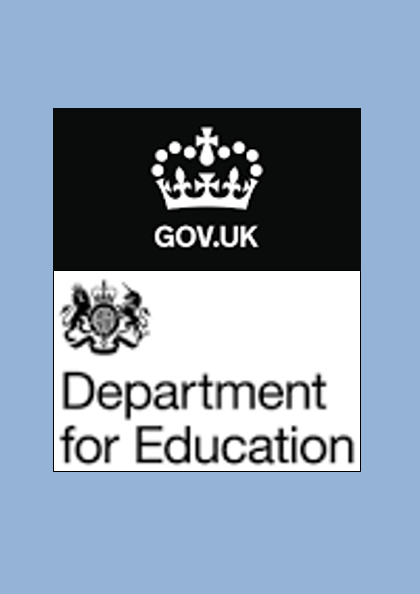
DfE Governance Update – December 2022
The DfE (Department for Education), as part of their regular governance update, have provided additional guidance to assist governors, trustees and school leaders in their governance roles. You may have already received this update if you are subscribed to the DfE GIAS (Get Information About Your Schools) system. The December 2022 briefing includes the following updates:
- Increased funding for schools in autumn statement
- National leaders of governance programme
- Supporting schools to be energy efficient
- Access to technical education and apprenticeship providers
- Baroness Barran message for governance professional pathway
The guidance can be gained directly from the www.gov.uk website by following this LINK

Federations: DfE Guidance on the Governance Processes 2022
The DfE have updated their guidance on the Governance of Federations. All categories of maintained school, including voluntary-aided, foundation schools and maintained school nurseries can federate together under one governing body. Academy schools cannot federate or join a federation.
The establishment and membership of a federation means that the governors and school leaders commit to improving the outcomes and life chances for all children across the federation, as opposed to just a single school.
The new guidance largely provides guidance on the setting up of a federation and also leaving and dissolving a federation.
The guidance can be gained directly from the www.gov.uk website by following this LINK

DfE Governance Update – September 2022
The DfE (Department for Education), as part of their regular governance update, have provided additional guidance to assist governors, trustees and school leaders in their governance roles. You may have already received this update if you are subscribed to the DfE GIAS (Get Information About Your Schools) system. The September briefing includes the following updates:
- Energy Bill Relief Scheme
- Publication of the Academy Trust Handbook 2022
- Publication of Guidance for Federations
- Find Volunteers to become Schools Governors
- Consultation: School Food Guidance & Training
- Risk Protection Arrangement members – cyber cover and regulatory mock trials
The guidance can be gained directly from the www.gov.uk website by following this LINK

DfE – Published Information on School and Academy Websites – 2022 Update
The DfE have updated their guidance on what information all LA maintained schools, academies and free schools must or should publish on their websites.
The updated guidance includes new sections on ‘School uniforms’ and ‘School opening hours’.
The guidance can be downloaded directly from the ww.gov.uk website by selecting the following links:
What maintained schools must or should publish online
What academies, free schools and colleges must or should publish online

DfE Careers Guidance and Access for Education and Training Providers 2022
The DfE have released new statutory guidance “Careers guidance and access for education and training providers” from September 2022. The guidance is for governing bodies, proprietors, school and college leaders, careers leaders and staff in maintained schools, academies and free schools (including alternative provision academies and free schools).
High quality careers education and guidance in school or college is critical to young people’s futures. It helps to prepare them for the workplace by providing a clear understanding of the world of work including the routes to jobs and careers that they might find engaging and rewarding. It supports them to acquire the self-development and career management skills they need to achieve positive employment destinations. This helps students to choose their pathways, improve their life opportunities and contribute to a productive and successful economy.
Schools must provide opportunities for a range of education and training providers to access all year 8 to 13 pupils to inform them about approved technical education qualifications and apprenticeships. Ofsted’s school inspection handbook has been updated to highlight the importance of schools understanding and meeting the requirements of this legislation, as careers information, education, advice and guidance is one of the key areas that informs inspectors’ overall judgements on Personal Development.
The statutory guidance can be downloaded directly from the www.gov.uk website by following this LINK

DfE – Keeping Children Safe in Education 2022
The DfE have published the latest update of the Keeping Children Safe in Education Document 2022. The statutory guidance, which comes into effect from 1 September 2022, sets out the legal duties schools and trusts must follow to safeguard and promote the welfare of pupils.
A notable amendment is that all governors and trustees will need to receive appropriate safeguarding and child protection training at induction. Their training will also need to be regularly updated.
The Local Authority in partnership with Bolton College provides ‘Keeping Children Safe – Level 1’ online training which can be accessed via the following LINK
More in depth centre based training on ‘Safeguarding and the Role of the Board’ is available to book on various dates in 2022-23 through the Governance Training and Development programme via the following LINK
Governance Services have updated model induction material to take account of this, with further promotion at the autumn term briefing sessions.
The statutory guidance can be downloaded directly from the DfE website by following this LINK
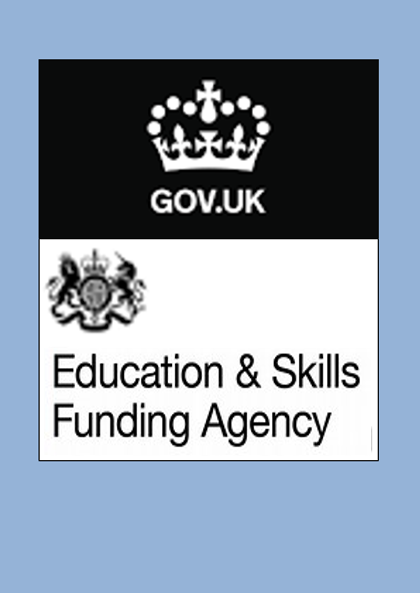
Academy Trust Handbook 2022
The ESFA (Education and Skills Funding Agency) has recently published the 2022 edition of the Academy Trust Handbook, previously know as the Academies Financial Handbook. The revised handbook comes into effect on 1 September 2022 with limited changes which include revised information about financial reporting, special payments, indemnities and religious character.
Copies of the Academy Trust Handbook 2022 may be downloaded via the www.gov.uk website by following this LINK

DfE Guidance on School Suspensions and Permanent Exclusions – September 2022
The Department for Education has published revised statutory guidance detailing the legal responsibilities for those who suspend (fixed period exclusion) and permanently exclude pupils from educational settings. The guidance comes into force from 1 September 2022 and is for use by local-authority-maintained schools, academies and pupil referral units.
Good behaviour in schools is essential to ensure that all pupils benefit from the opportunities provided by education. Therefore, the government recognises that school exclusions, managed moves and off-site direction are essential behaviour management tools for headteachers and can be used to establish high standards of behaviour in schools and maintain the safety of school communities.
This document provides a guide to the legislation that governs the suspension and permanent exclusion of pupils from all maintained schools (including special schools), pupil referral units (PRUs), academy schools (including free schools, special schools, studio schools and university technology colleges) and alternative provision academies (including alternative provision free schools) in England. It also includes the use of behavioural strategies such as managed moves and directing pupils off-site to improve behaviour to help prevent a suspension or permanent exclusion. The document provides statutory guidance to which headteachers, governing boards, local authorities, academy trusts, independent review panel (IRP) members and special educational needs (SEN) experts, social workers and Virtual School Heads (VSHs) must have regard when carrying out their functions in relation to suspension and permanent exclusions.
The guidance can be downloaded directly from the DfE website by following this LINK
This guidance should be used alongside the ‘Behaviour in schools: advice for headteachers and school staff 2022’ which also comes into force from 1 September 2022. This can be downloaded directly from the DfE website by following this LINK
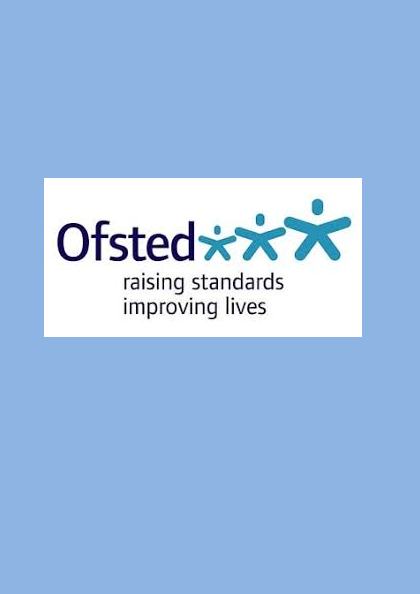
Ofsted School Inspection Framework – September 2022
Ofsted have reviewed and updated its inspection framework and school inspection handbooks to take account of the pandemic, curriculum transition arrangements and general understanding of inspections.
The changes which will take effect from September 2022, include the renaming of section 5 inspections which will be known as a ‘graded inspections’ and section 8 inspections which have been changed to ‘ungraded inspections’. A new grade descriptor has been embedded into the quality of education judgement to recognise that amendments to elements of the curriculum will be ongoing to suit the needs of pupils following the pandemic.
The guidance can be downloaded directly from the www.gov.uk website by following this LINK
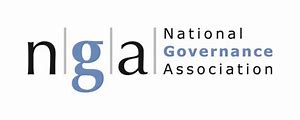
NGA Revised Governance Skills Audit Tool
The National Governance Association (NGA) have revised their governance skills audit tool that helps governing and trust boards to identify where they need to develop knowledge, skills and behaviour to deliver their functions effectively. The NGAs updated skills audit builds on the changes made last year: concise scoring guidance helps governors and trustees to provide accurate and consistent scores. While the content of the audit remains largely unchanged, you’ll notice further improvements to format and ease of use.
The revised governance skills audit tool can be downloaded directly from the NGA website by following this LINK
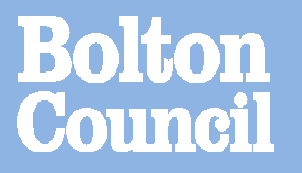
Can you provide support to another Board Locally?
As part of the Local Authority’s statutory responsibility for maintained schools across the Borough, we assist governing boards that require additional support to help them meet their strategic responsibilities through a number of supportive strategies and interventions.
We are therefore currently looking for experienced governors that might be able to assist a governing board locally either in the short, medium or longer term. This is to help provide experience and capacity as a serving member of a board.
If you feel able to provide support and would like further information, please contact John Ashworth, Governance Services Manager for an informal discussion on 01204 338603 or via email at john.ashworth@bolton.gov.uk

DfE – Working Together to Improve School Attendance
The Department for Education (DfE) has produced new guidance to help schools, academy trusts, governing bodies, and local authorities maintain high levels of school attendance including roles and responsibilities.
The guidance will apply from September 2022, and details what is expected as schools publish their attendance policy. The guidance also includes what is expected of governing boards in terms of the support, guidance and challenge required to ensure effective whole school approaches to improving attendance. As improving school attendance on a whole school or trust basis begins at board level, the summary table of responsibilities that accompanies the guidance also clearly outlines governing board attendance responsibilities in relation to various pupil groups.
The guidance and summary table of responsibilities can be downloaded directly from the www.gov.uk website by following this LINK

SEND Bolton Local Offer
The Bolton Local Offer provides a single point for information to help families access details about services available to them, and offer guidance in multiple areas, such as:
- Early years places
- Schools (including academies and free schools)
- Colleges
- Health and care
- Leisure activities
The Local Offer also includes guidance for parents when they need to speak with practitioners and professionals and information on giving feedback, raising concerns and making complaints.
You can access the local offer website by following this LINK

Ofsted Webinar – Education Inspection Framework in Primary Schools
Ofsted published a webinar held on 28 March for schools on how inspectors inspect against the education inspection framework (EIF) in primary schools. The webinar Includes clarification on deep dives, subject leadership in primary schools, and early reading.
The Primary School Improvement Team advised, at the recent Head Teacher School Improvement Briefing, that the video might be a useful resource for those involved in the governance of a primary school or academy.
The webinar is available to view via the Ofsted’s YouTube Channel using the following LINK

NGA 20 and 21 Questions for Governing Board Self-Evaluation – 2022 Update
The NGA (National Governance Association) 20 and 21 questions are designed to be an integral part of governing boards reflecting on their practice. They cover key areas of board practice including the core functions of governance, board culture, structure, accountability, and impact. Evaluating board effectiveness is good practice and self-evaluation is one of the main methods that boards use to monitor and improve their governance.
The 20 and 21 questions were originally developed in 2012 and 2015 by NGA, The Key for School Governors and the All-Party Parliamentary Group (APPG) on Education Governance. The revised questions include an additional 16 questions for self-evaluation of those at academy committee level (local governing bodies) to encourage MATs to self-evaluate both layers of governance. The 2022 update of the questions follows an NGA consultation with members and colleagues across the sector. As a result of the feedback provided, the NGA have:
- developed a set of questions for academy committees (local governing bodies)
- constructed supporting guidance to help respondents ‘RAG’ rate their answers
The content of the questions has also changed, such that they:
- place greater emphasis on the importance of governance professionals
- emphasise the importance of board diversity
- reference board dynamics, culture and behaviours
- reflect best practice (supported by the new guidance)
The resource may be downloaded directly from the NGA website using the following LINK

What Governing Boards and School Leaders Should Expect From Each Other
The sixth edition of the popular guidance jointly produced by the NGA and the national professional organisations, which covers what governing boards and school leaders should expect from each other has been published. In a departure from the previous five editions, there are now two separate versions: one for governing boards and headteachers in single schools and federations and another for multi academy trust boards and CEOs. Both versions are focused on ensuring relationships between school leaders and governing boards are as effective as possible, and improve outcomes for children and young people, through:
- Respecting respective roles
- Working together to set a strategy
- Stakeholder engagement
- Ensuring your school/trust is a great place to work
- Making governance effective
- Ways of working
You can download the latest edition of the guidance directly from the NGA website using the following LINK
Schools White Paper – Opportunity for All
The Schools White Paper, Opportunity for All, sets out the Governments plans to make sure every child can reach the full height of their potential.
The release of a white paper marks the first such publication since 2016, providing a mixture of previously announced national policies, with a number of new ones. It contains some insight on the future of national education policy, building on the ambitions from the government for a “flourishing school system”. It also sets out the government’s plan for a fully trust based system.
Education Secretary Nadhim Zahawi said the release marked “levelling up in action” but the overall reception to the white paper has been mixed, with many sector commentators noting the lack of new announcements.
Further information and the press release can be found via the www.gov.uk website using the following LINK
Bernie Brown, Bolton Director for Children’s Services and Geraldine Whitehead, Assistant Director for Inclusive Education and Learning, recently wrote to all Head Teachers and Principals about the release of the White Paper and the exploration of opportunities for the Bolton family of schools and academies.
A copy of this letter can be viewed via the download (left)

Education Recovery in Schools 2022
Catch up strategies are continuing to be used effectively to identify areas of concern, but the wider impact of the pandemic is continuing to be felt, particularly in early years. Ofsted’s latest briefing on education recovery highlights overall clear signs of improvements but casts concern on the impact of high levels of absence on pupil mental health and behaviour. Ofsted chief inspector Amanda Spielman said she was “particularly worried about younger children’s development”. The report emphasizes the continuing impact on communication and language development as well as the negative implications for children’s personal, social and emotional development.
However, the report does indicate that school leaders are responding well by putting measures in place including staff modelling positive behaviour to develop the youngest pupils’ understanding of sharing and listening skills and creating calm atmospheres where possible.
You can view the full Ofsted briefing via the www.gov.uk website via the following LINK

The Green Paper – SEND Review: Right support, right place, right time
The long-awaited SEND Review was published this week with Nadhim Zahawi, Education Secretary, promising “a more inclusive and financially sustainable system, where every child and young person will have access to the right support, in the right place, at the right time”.
It sets out the government’s proposed reforms to SEND and AP provision and addresses three key challenges:
- outcomes for children and young people with SEN or in AP are poor
- navigating the SEND system and alternative provision is not a positive experience for children, young people and their families
- despite unprecedented investment, the system is not delivering value for money for children, young people and families
The delivery of the plans is set out in chapter 6 of the review and includes the publication of a national SEND and alternative provision delivery plan and a new National SEND Delivery Board.
Further information can be gained directly from the www.gov.uk website by following this LINK

Changes to the School Suspension and Permanent Exclusion Process
Statutory guidance describing temporary changes to the school suspensions and permanent exclusions process will not apply to suspensions and exclusions that occur from 25 March 2022 onwards. This brings an end to temporary arrangements regarding the use of remote access technology for meetings of governing boards and independent review panels (IRPs), unless the exclusion being considered occurred up to and inclusive of 24 March.
Governing boards and independent review panels must ensure that meetings take place within the normal statutory timescales described in the statutory guidance suspensions and permanent exclusions from maintained schools, academies and pupil referral units in England.
In response to the Timpson review of school exclusions, the government is working with sector experts to publish clearer, more consistent guidance. They have undertaken a consultation process with a view to proposed changes to the behaviour in schools guidance and the suspension and permanent exclusion guidance for England. The aim of this guidance is to support schools to:
- create positive behaviour cultures
- ensure suspensions and permanent exclusions are conducted in a lawful, reasonable and procedurally fair way




